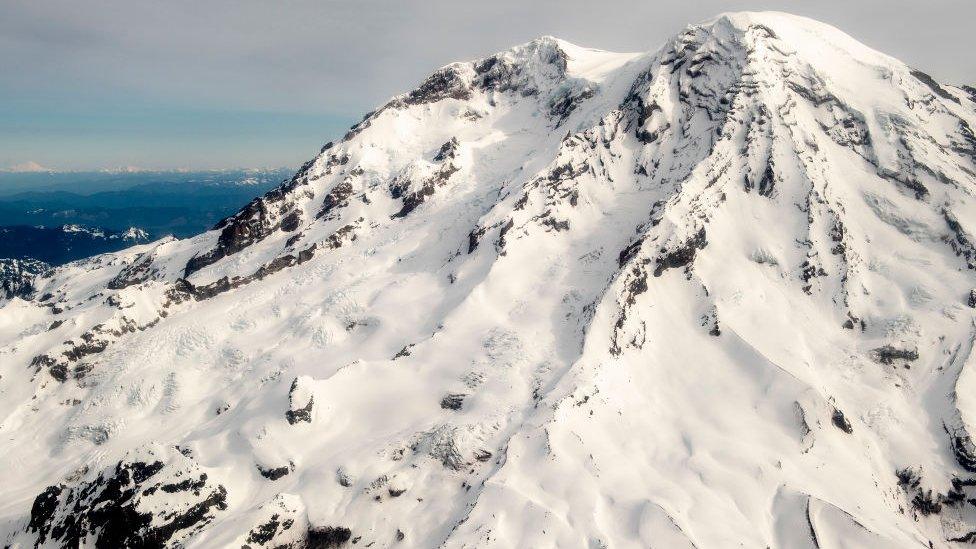US heatwave causing 'biggest glacier melt in a century'
- Published
- comments

The heatwave in the west of the US and Canada is causing the biggest glacier melt in a century in Washington State
It comes just weeks after another heatwave hit the US and experts say it is causing glaciers to melt at worrying rates.
The extreme weather hitting the west coast of the US and Canada at the moment are causing record-breaking high temperatures of up the 50 degrees C across the area.
Scientists say the heat wave has been caused by a heat dome and that it's being made worse by the effects of climate change.
A heat dome is when "The air is sinking, as it sinks it... gets warmer. It also dries out, so few clouds form to block the high early-summer sun."
Milky coloured water has been seen flowing into the Pacific ocean and scientists say this could be rocks and minerals from the glaciers melting nearby.
According to University of Washington assistant research professor of glaciers and climate TJ Fudge, the heat is causing the biggest melt in Washington state in a hundred years.
On nearby Mount Rainier, which is normally one of the most glaciated peaks on the main land of the US melting is also taking place.
Scott Pattee who works for the Washington Snow Survey and Water Supply Forecasting, said: "It is a big deal, I mean we've been losing glaciers a lot lately due to climate change... but to have them go this rapidly is really quite scary."
According to Mr Pattee parts of the Western slope of Mount Rainier lost more than three feet of snow in just five days.
The melting is especially worrying because when the snow melts the plant life underneath is exposed meaning there is a higher risk of fires on hit temperatures.
